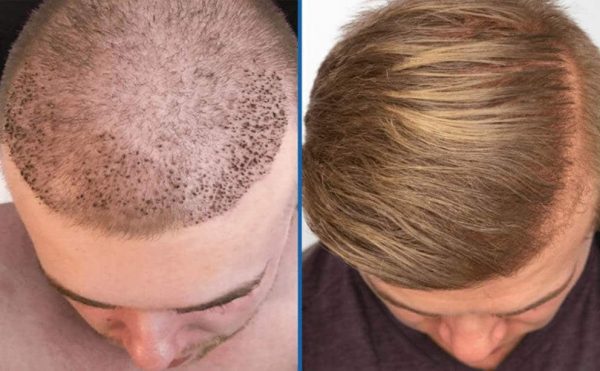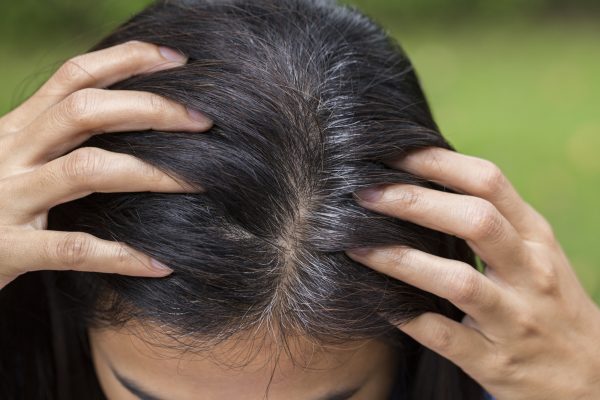Creatine is a common dietary and athletic supplement. You might have heard that using creatine might cause hair loss. Is this, however, correct?
While creatine may not cause hair loss directly, it may influence the levels of a hormone that does.
Continue reading to discover more about creatine, its advantages and negative effects, and what research indicates regarding its relationship to hair loss.
What research indicates regarding creatine and hair loss
There isn’t much evidence that creatine supplementation promotes hair loss. Indeed, much of the evidence supporting the connection is anecdotal. This signifies that it is based on personal testimony or experiences.
A tiny 2009 research of college-age rugby players discovered elevated levels of a hormone-related to hair loss after 3 weeks of a creatine supplementation program. This hormone is known as dihydrotestosterone (DHT).
Levels of creatine and dihydrotestosterone (DHT)
DHT is a hormone that is generated from testosterone, which you may be familiar with. DHT is also stronger than testosterone.
What is the relationship between DHT and hair loss?
Hair follicles have a distinct life cycle. A period of hair growth is followed by a period of rest, following which the hair falls off.
DHT has the ability to connect to certain hormone receptors in hair follicles. This can result in shorter hair growth cycles as well as thinner and shorter hairs. Because hair development is slower, more hairs fall out than are replaced.
Furthermore, some people are genetically predisposed to hair loss. Variations in the AR gene can cause an increase in the activation of hormone receptors present in hair follicles.
Furthermore, the enzyme that transforms testosterone to DHT may be more active in those who are experiencing hair loss.
What is the relationship between creatine and hair loss?
The 2009 trial in rugby players employed a creatine supplement regimen that included 7 days of loading with a greater dosage of the supplement. This was followed by a period of decreased creatine maintenance.
The researchers discovered that DHT levels jumped by more than 50% during the loading phase and remained 40% higher than baseline during the maintenance period. Testosterone levels were unchanged.
It’s worth noting that the researchers didn’t look at hair loss in the study subjects. As a result, we can only examine the influence on hormone levels in this case.
DHT levels were found to be higher. Because DHT levels influence hair loss, this rise may put you at danger, especially if you are genetically susceptible to hair loss.
Overall, additional study into creatine’s influence on DHT levels is required. Additional studies should be conducted to determine whether increases in DHT caused by creatine consumption are adequate to trigger hair loss.
What exactly is creatine and how does it function?
Creatine provides energy to your cells. It is made naturally by your liver, pancreas, and kidneys. You may also get creatine from your diet by eating red meat and seafood.
Creatine is stored as phosphocreatine in your skeletal muscles. This can subsequently be broken down and utilized as energy for muscular contractions during physical exercise.
Creatine pills increase the amount of creatine in your muscles. Your muscles may be able to create more energy as a result of the rise in creatine levels.
As a result, some people use creatine to build muscle and improve athletic performance. Creatine supplements come in many different forms, including powders, liquids, and pills.
Safety and side consequences
If you wish to take creatine, you should be aware of certain potential side effects and safety risks. We’ll go through these issues in further depth below.
Retention of water
Creatine can promote water retention, resulting in temporary weight gain. Concerns have been expressed that water retention may increase the risk of dehydration and cramping. However, evidence has not backed up these fears.
A 2003 study of college football players indicated that creatine did not increase cramping or injury. Furthermore, a 2009 analysis revealed no evidence that creatine consumption harmed fluid balance or heat tolerance.
Concerns about the kidneys
There is also worry that creatine may harm the kidneys. A 2018 study discovered that creatine has no harmful impact on renal function in healthy people.
If you have underlying renal issues, you should avoid using creatine supplements.
Adults can use it.
Creatine has received the most attention in terms of ergogenic properties when compared to other supplements. According to the International Society of Sports Nutrition, creatine is safe to consume in proper dosages.
Furthermore, the International Society of Sports Nutrition stated in a 2017 policy statement that utilizing creatine within the correct parameters is safe, beneficial, and ethical.
There has been little research that looks at the long-term consequences of creatine consumption. However, other previous research (from 2001 and 2003) involving athletes found that long-term creatine consumption has no negative health impacts.
Adolescents should be treated with caution.
When it comes to creatine supplementation, adolescents should proceed with care. This is due to the scarcity of research on the safety of creatine supplementation in healthy teenagers.
However, most teenagers consume some creatine as part of their daily diet.
If you want to start using creatine supplements but have questions or concerns, talk to your doctor first.
When should you see a doctor?
As previously stated, creatine supplementation does not cause hair loss. However, if you are having hair loss, you should consult your doctor.
You should also visit a doctor if you have abrupt, uneven hair loss or if you lose a lot of hair when brushing or washing your hair.
Many reasons for hair loss can be treated. Your doctor will collaborate with you to determine the reason of your hair loss and propose the best therapy for you.
The Bottom Line
Creatine does not immediately cause hair loss, according to the study, although further research is needed in this area. According to one 2009 study, creatine supplementation is connected with an increase in DHT, a hormone that can cause hair loss.
Overall, the present data suggest that creatine is safe to take as a supplement for most individuals. However, because it may increase DHT levels, you should avoid using creatine or see your doctor before using it if you are prone to hair loss.


